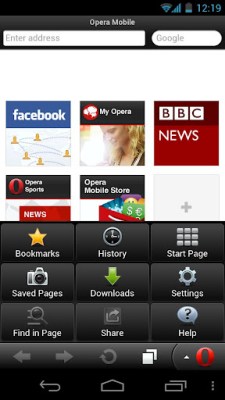Earlier this month, Opera and Android briefly made headlines together when one analytics firm found that Google’s OS, Android, had finally overtaken Opera as the world’s largest mobile browser. Today, the two are in the news again for a slightly different reason: Opera is releasing the newest version of its popular (and free) Opera Mini and Opera Mobile browsers with added camera, HTML5 and 3D graphics support — one way for Opera to claw back some share on Android, currently the biggest smartphone platform in the world.
The new version of the browser is something that Opera had hinted was in the works back in February, when it announced deals to further its reach in the area of mobile payments. As with that news, today’s release is another example of how mobile browser developers are looking to add more features to make their products more like native platform experiences. The release comes at the same time that Opera has also released a new edition of its browser for Symbian.
Opera’s title as the world’s largest browser has partly been because it was an early mover and works across a range of feature-phone and smartphone platforms. It says that it is currently used by some 160 million people worldwide. Given that Android is now the biggest smartphone platform around and able to gain ground on Opera simply through that market share, it was essential for Opera to update and go one step further than it had before.
New features include the ability to create an unlimited number of bookmarks (“Speed Dials”) to quickly go to your favorite URLs — before there had been a limit of nine. This new version of Opera Mobile now also includes camera support, as well as better support for HTML5 sites’ functionality through its Ragnarök technology. It is also adding WebGL support, for 3D functionality. WebGL is used in the development of cross-platform games.
Opera has long said that one of its strongest points against other browsers — and platforms’ native clients — is its page compression technology, which improves the speed of browsing on the mobile web. In the new version of Opera Mini, it’s taking that one step further and claiming that it’s actually cheaper to use it than its competition because it compresses web pages up to 90 percent. Other improvements, it says, include faster panning around sites.
Ironically, the most up-to-date figures from StatCounter, the company that said Android had overtaken Opera, show that, in fact, Opera Mini is back on top over Android as the world’s most popular browser. The fact that the rankings change so frequently point to how important it is to keep innovating on features to keep users loyal.

